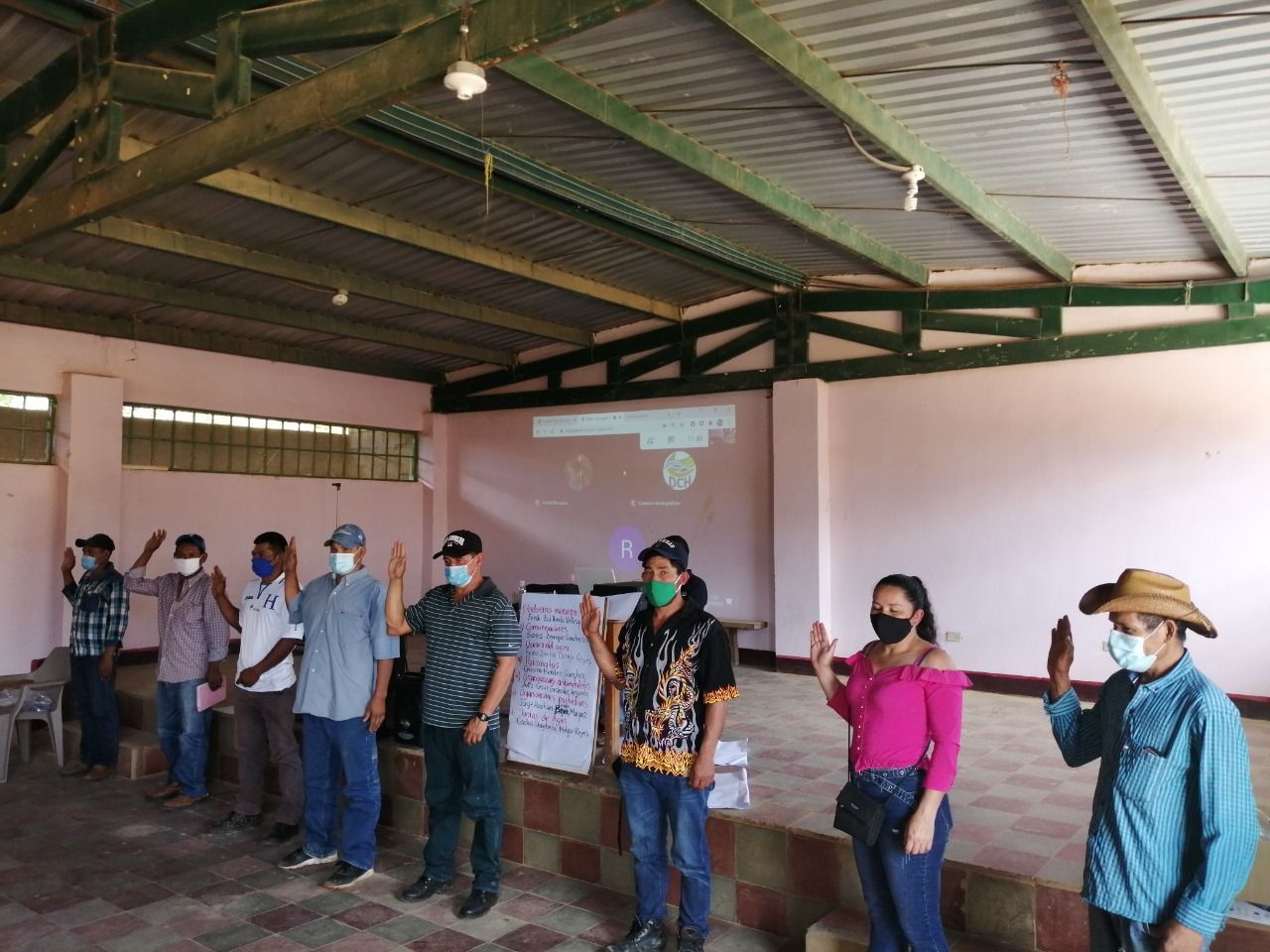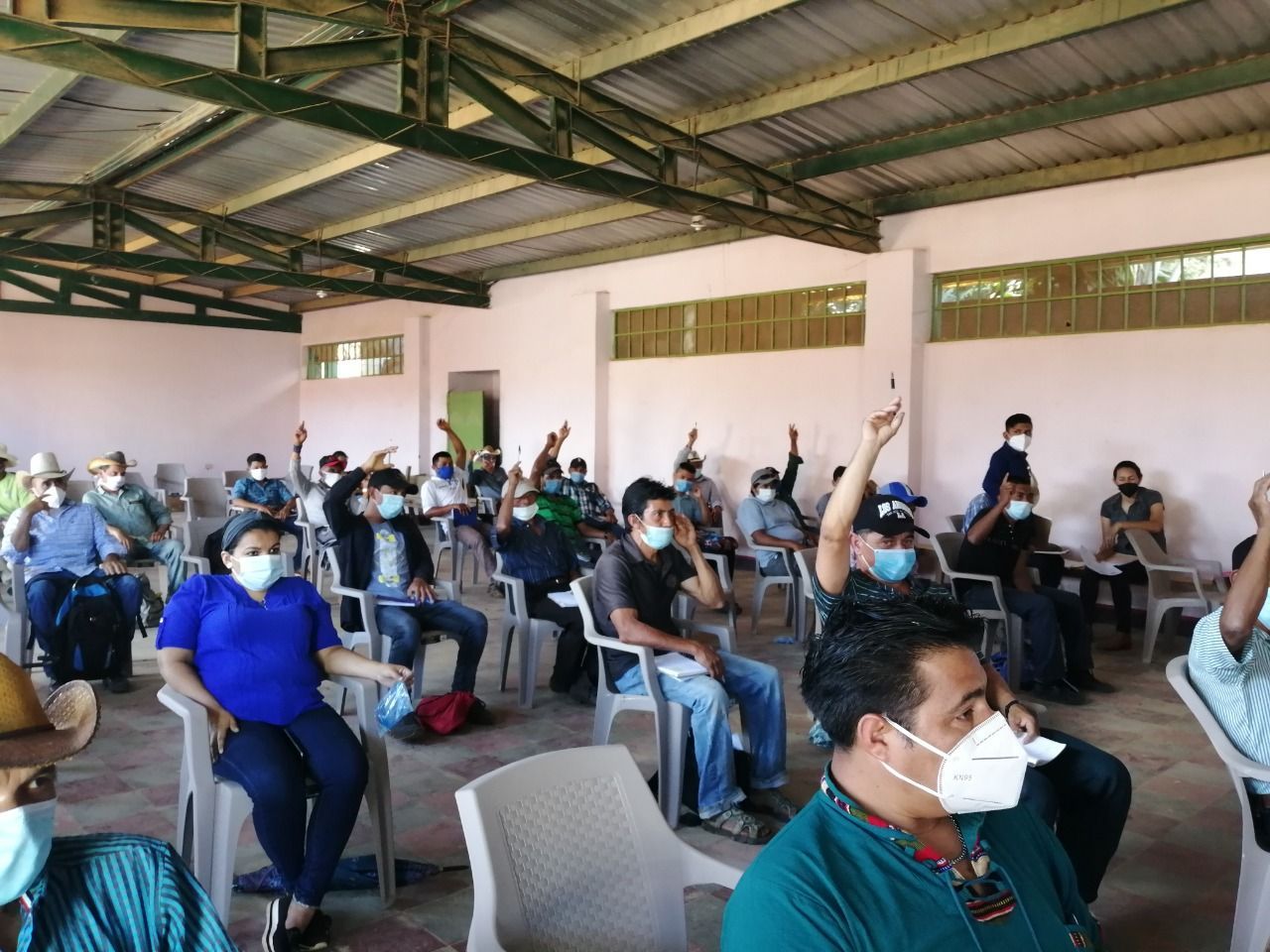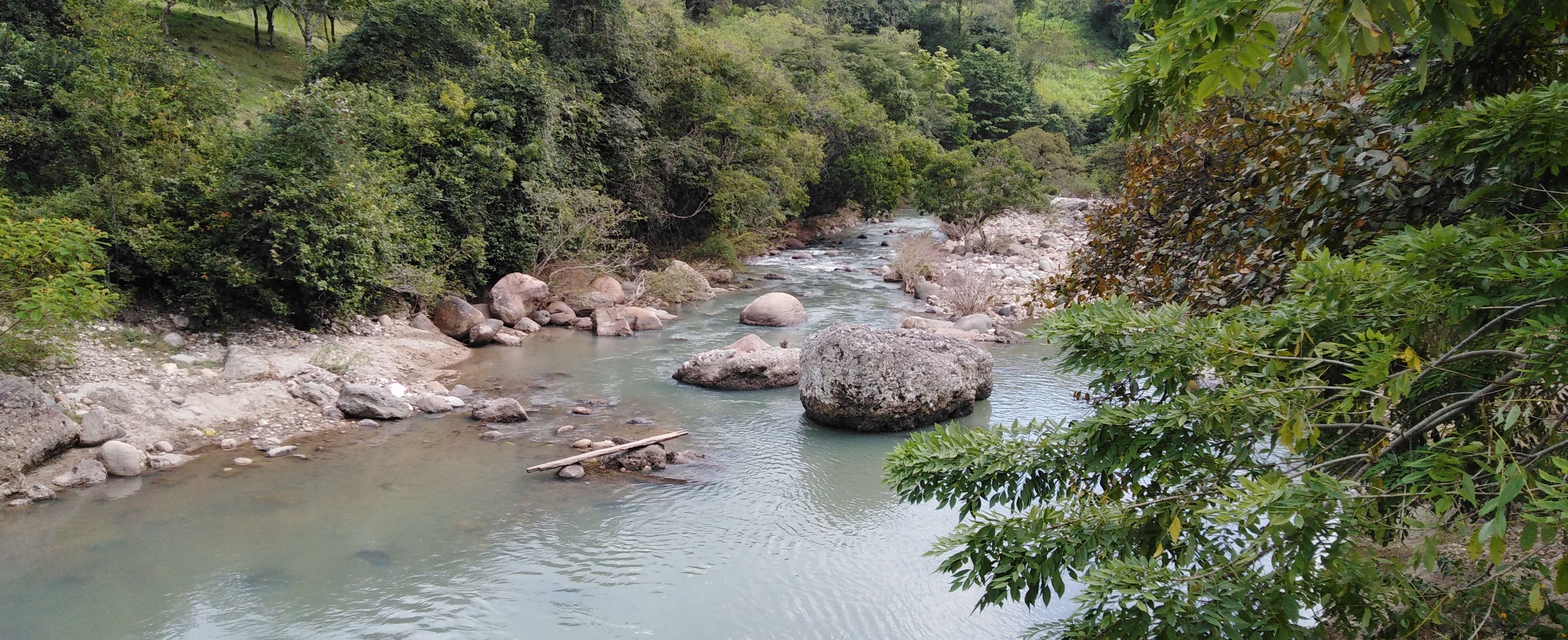It is generating an environment favourable for Resilient Food Production in the project's intervention area in Honduras.
Honduras, November 19, The Climate-Smart Family Agriculture Project (AFCIPRA), as part of EUROCLIMA+'s actions in Honduras, is successfully advancing the design and implementation of a comprehensive, multi-stakeholder and multi-level water governance model that will generate an enabling environment for Resilient Food Production (RFP), since it considers the watershed as the management unit and water as the integrating resource.
"The water governance model includes the development of watershed planning instruments and the formation of Watershed Organisations at the three levels: Microbasin, Sub-basin and Watershed Councils, and the institutionalisation of the process" said Engineer Roger Fernandez, Watershed Specialist of the AFCIPRA Project.
The Project has already met the goal of forming two Watershed Councils, for Chiflador/Guaralape and El Venado, in a context of restrictions and limitations due to the Covid 19 pandemic.
The Watershed Organisations are integrated with a multi-stakeholder and multi-level approach, with representatives from: local government, the Protected Areas Unit, water user organisations, farmer organisations, boards of trustees, environmental organisations, productive organisations linked to the water scheme, indigenous peoples, Water Management Boards, and the forestry advisory councils.
Fernández highlighted that, in addition, the Action Plan for water management in the micro-basin has already been prepared. It contemplates actions that contribute to the conservation and/or improvement of the quantity and quality of the water resource of the Chiflador and Guaralape micro-basin, through the implementation of participatory strategies that ensure the sustainability of access to water ecosystem goods and services, which guarantees the quality of life of present and future generations.
"The Plan contains strategic actions such as: integrated management of water, soil and forest resources, improvement of community infrastructure, basic health sanitation, hygiene, best community water practices, and the promotion of governance," he added.
The Watershed Councils are in charge of implementing their water management plan. They are the main actors in all planning, management, and administration of natural resources in their territory, Fernandez added.
The Water Management Boards, during the constitution of the Councils, expressed their interest in having a broader figure where dialogue, reflection, and decisions regarding the natural resources of the territory could take place, such as the Watershed Councils.
 |
Watershed Council
Arduous process and challenges with the pandemic
The formation of the Watershed Councils involved an arduous process that included: extensive socialisation, an assembly with stakeholders to explain the new Special Regulations for the formation of Watershed Organisations in Honduras, which establishes the general provisions, principles, and applicable regulations for the constitution, formation and operation of the Watershed Organisations.
Lobbying work was carried out with different actors, where public and private sectors, municipal governments, government agencies and all institutions and organisations linked to water resources, and the communities through their patronage structures, water management boards, women's groups, farmer groups and indigenous communities converge.
Moreover, the mapping of actors and the delimitation of the territory were carried out in order to hold a major assembly where the Watershed Organisations were formed.
Fernandez stressed that the entire process was carried out in the context of the pandemic, which forced a change in the planning and innovation. The municipal governments established rules for massive meetings, which were limited to certain numbers of people, in open spaces, with social distancing and with all the biosecurity measures, therefore some virtual workdays had to be carried out.
The next steps
AFCIPRA is working together with all stakeholders on the next step of the water governance process, the elaboration of the internal regulations of the Chiflador/Guaralape and El Venado Microbasin Councils, and the special bodies for their functioning and presenting the documentation to the water authority for its due recognition.
The Microbasin Councils will be a municipally and locally recognised organisation after the approval of the internal regulations and the Water Action Plan. With this, they can already implement the corresponding action in their territory.
In the process of strengthening the mechanisms of water governance for the integrated management of the water, forest, and soil resources of two micro-watersheds has been facilitated by the AFCIPRA Project in close coordination with the Directorate of Water Resources of the Secretariat of Mi Ambiente, as the leading public governance entity that advised the process to be carried out as established in the national legislation in force.
About AFCIPRA
The AFCIPRA project is part of the actions of #EUROCLIMAPlusFoods. It promotes resilient food production with 600 families of Lenca indigenous communities and the mestizo population, under a sustainable water resource management approach in the El Venado and Chiflador - Guaralape watersheds in Honduras.
AFCIPRA is executed by the Dutch Service for Development Cooperation (SNV) and the Association for the Integrated Management of the La Paz and Comayagua Watersheds of Honduras (ASOMAINCUPACO). Its strategic partner is the Centro Universitario Regional del Centro (CURC-UNAH) Honduras, and its political counterparts are the Presidential Office for Climate Change of Honduras (Clima+), and the Ministry of Environment of Guatemala.
For more information:
Judit Vanegas, Communication AFCIPRA, This email address is being protected from spambots. You need JavaScript enabled to view it. (+505) 8510-1926
 |



